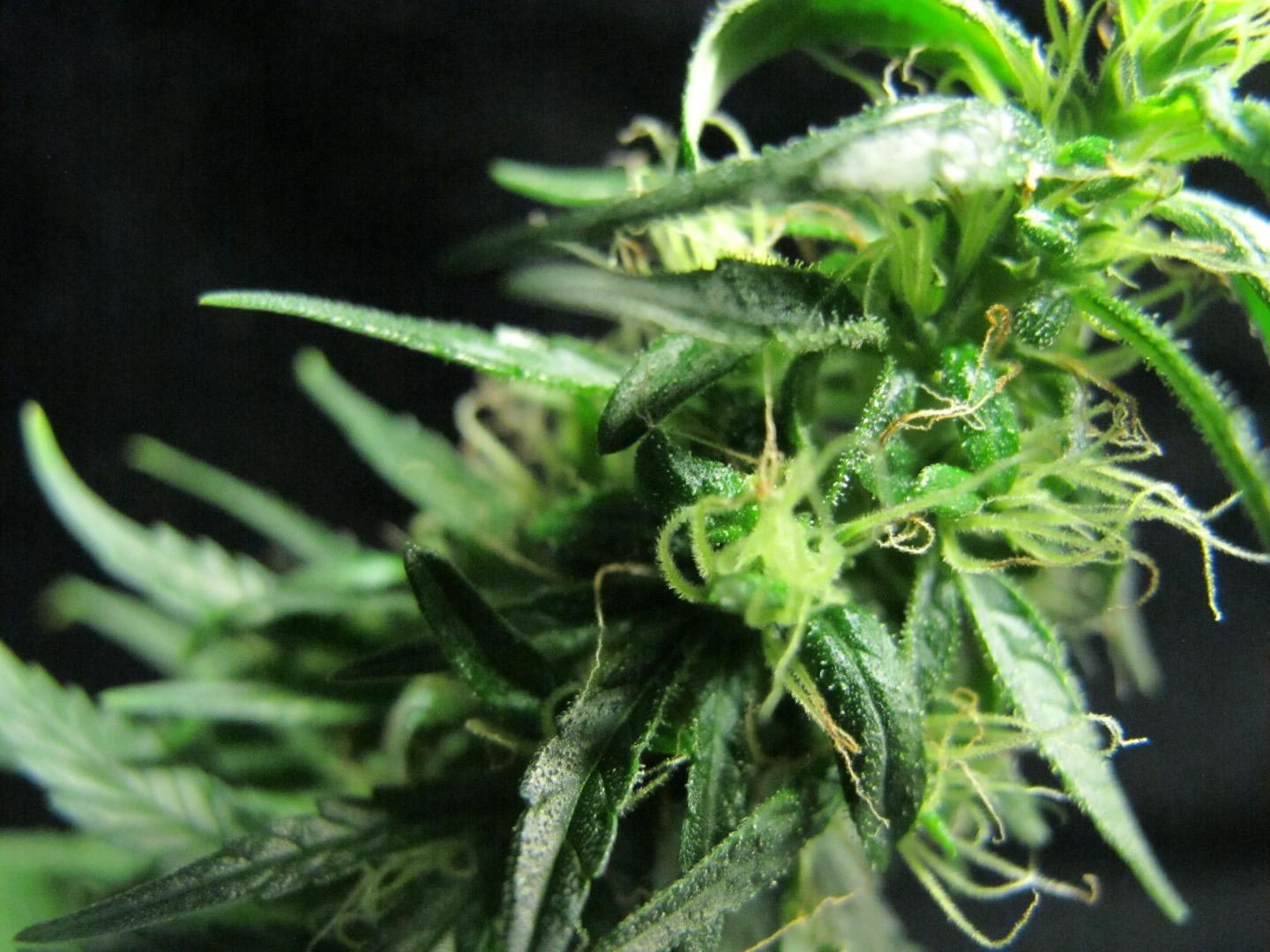Women of weed rise high in Phillyby Sam Wood and Erin Arvedlund, Updated: October 30, 2019- 5:00 AM
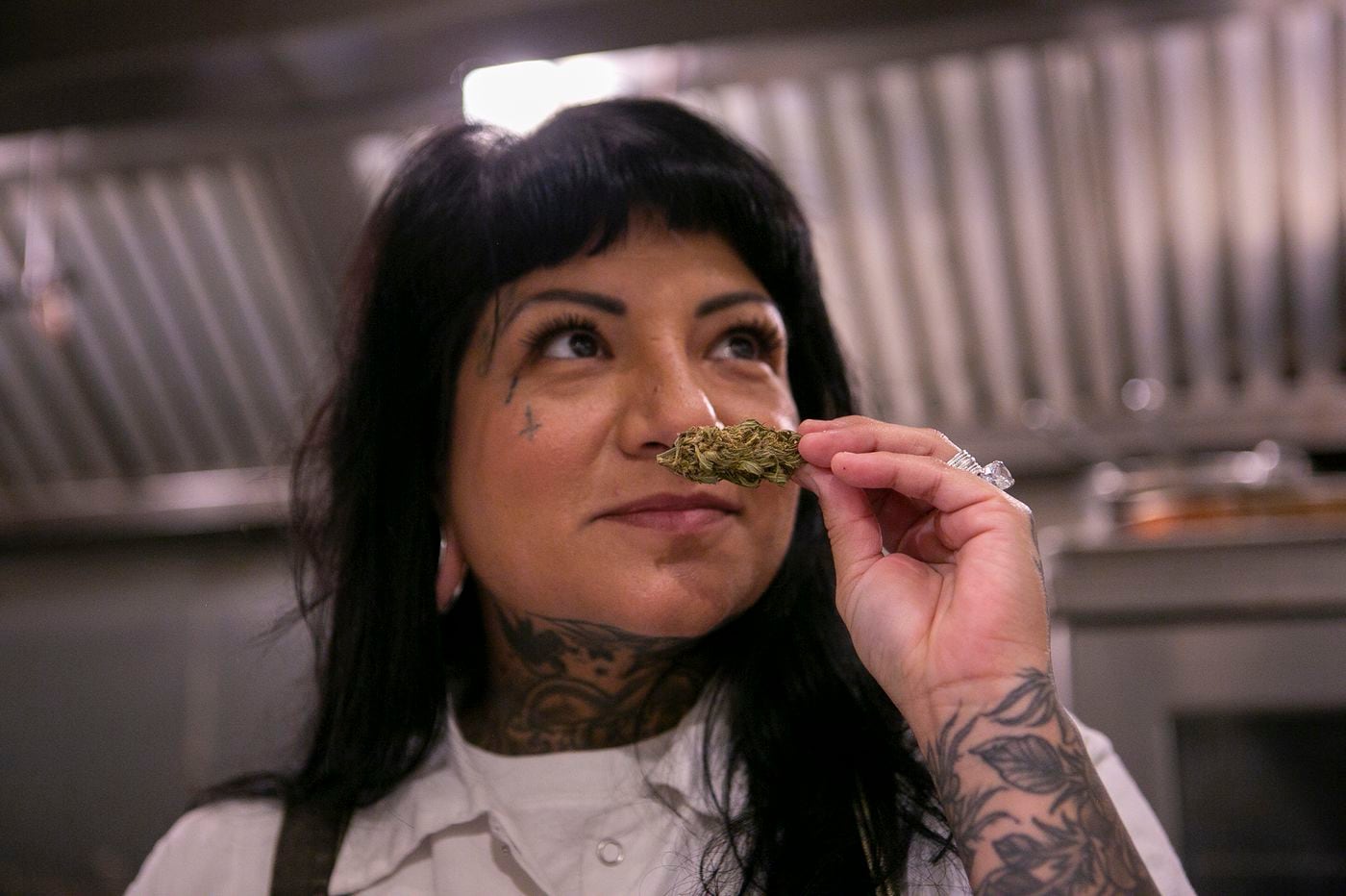
MIGUEL MARTINEZ / STAFF PHOTOGRAPHER
One area woman has received $3.5 million in grants from the National Institutes of Health to study aspects of marijuana. Another is a former martial arts athlete who ran an erotic boutique before seguing into CBD products. And a third is a former Top Chef contestant who infuses marijuana in her food and aims to write a cookbook.
Cannabusiness is attracting women of all backgrounds, from millennials to boomers, from private equity hotshots and serial entrepreneurs to planners of underground pot parties.
EDITOR'S PICKS
‘Gold standard’ bill to legalize recreational weed in Pa. introduced in Harrisburg
Pro/Con: Should Pa. legalize recreational marijuana? | Opinion
As farmers flock to hemp, Amish and ‘English’ in Pennsylvania foresee real profits
Is there “pink-washing” in marijuana, where male-owned businesses use women as cover on an application? Probably. But nevertheless, women persist.
The Inquirer is profiling women who have started businesses or are active in the field of recreational and medical marijuana. Pennsylvania and New Jersey both award medical marijuana licenses, among 33 states that have done so, and there have been proposals in both states to broadly legalize recreational use.
It’s not just marijuana that is opening up business opportunities. Hemp, marijuana’s cousin and the source of the nonintoxicating CBD, was grown in Pennsylvania for more than 260 years as a valuable cash crop until it was banned in the 1930s. Hemp production became legal for research in 2014, and now is legal to farm across the United States. Researchers are exploring the plant’s potential to suppress weeds, add diversity to crop rotations, and boost farmers’ bottom lines.
Christina Visco, owner and CEO, TerraVida Holistic Centers
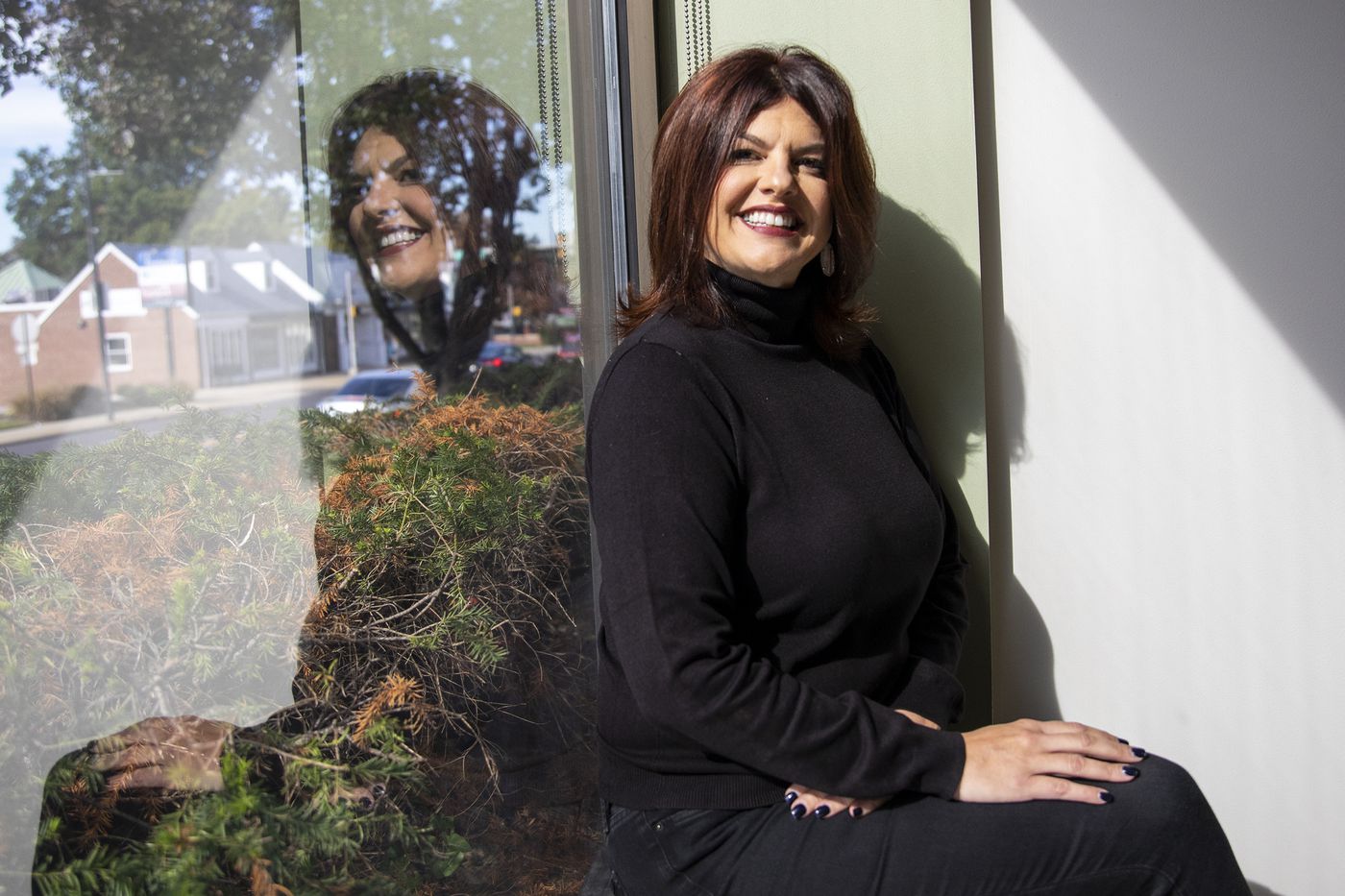
Christine Visco, 48, of Conshohocken, President/COO of Terra Vida Holistic Center. "There are no women in weed," Visco said. "Women just need to get out there. Women have a huge opportunity in this business."
TYGER WILLIAMS / STAFF PHOTOGRAPHER
Christine Visco, 48, of Conshohocken, President/COO of Terra Vida Holistic Center. "There are no women in weed," Visco said. "Women just need to get out there. Women have a huge opportunity in this business."
Chris Visco is Pennsylvania’s dominant retailer of medical marijuana. The mother of three is the cofounder and CEO of TerraVida Holistic Centers, with three cannabis dispensaries scattered across the Philadelphia suburbs, and the largest legal weed dealer in the Keystone State.
TerraVida sells between 30 and 40 pounds of marijuana flower a week through each of its three locations. Visco employs 130 full-time workers.
“There are very few women in weed,” said Visco, one of the most high-profile names in Pennsylvania’s marijuana industry, male or female. She’s hoping other women will join her in the business, although she acknowledges it requires serious capital.
“Women need to raise their own money and put their face on the business. Right now, we’re one of the the only women-owned [marijuana] businesses in the state. We got investors, but we made sure to retain control," Visco said.
And there is pink-washing going on, she alleges. “Some men put their wife’s name on the application” for a marijuana businesses that isn’t truly female-owned or -operated.
“It’s definitely the hardest thing I’ve ever done,” said Visco, a native of Conshohocken and a retail guru who was mentored by the president of Boscov’s. She has said she wants to be known as “the Al Boscov of cannabis.”
What would she advise other women thinking of getting into marijuana as an industry?
“Do it, but be aware of the challenges. Make sure to get private investors, venture capital and angel investors, and have a strong financial plan.”
Business runs in her blood. Visco’s grandmother started a plastics company in Trevose, and “she gave me little jobs as a kid in the back office.”
And be prepared to do a lot of your own marketing, she adds.
“I personally appear at all kinds of events in the community.” She’ll be speaking next on Nov. 12 at the KleinLife center at 7763 Old York Rd., Elkins Park.
Lindy Snider, financier, founder Treehouse Global Ventures
Lindy Snider, co-founder Treehouse Global Ventures and founder of LindiSkin.
COURTESY OF LINDY SNIDER

Lindy Snider, co-founder Treehouse Global Ventures and founder of LindiSkin.
Snider is considered Philadelphia’s first-mover in cannabis investments. She became interested in the business of medical cannabis while she developed LindiSkin skincare products. It was while studying available treatments for cancer patients, she said, that she saw a need to develop best practices for an industry hampered by a dearth of science-based research.
Snider was at the vanguard of the legal cannabis expansion in Pennsylvania. She has been actively investing since the days when medical cannabis was legalized in only a handful of states. She co-founded Treehouse Global Ventures investment firm and also is involved with the Arcview Group, Greenhouse Ventures, and Manna Capital; property-focused Stem Holdings; Kind Financial, which provides banking services to cannabis businesses; And companies such as Lenitiv Scientific, founded by Montel Williams.
Her philanthropic endeavors include serving as the chair of Athletes for Care, a nonprofit founded by pro athletes who advocate for cannabis research and education, and working with the Entrepreneurship and Social Impact Initiative to foster diversity in the cannabis industry.
Her advice to women entering the cannabis space: "Stay focused. The cannabis industry isn’t one industry. It’s 100 industries, no different than the rest of the business world. It's agriculture, retail, branding, technology, insurance, legal. Focus on one sector."
Also, cannabusiness prides itself on being socially conscious, and keeping women and minority access top of mind, Snider said. “Women and minorities are recognized as untapped and needed as a resource. There’s a great opportunity right now.” That said, the ratio of women founders to men in cannabis is probably still around 20%, which needs improvement, Snider added.
Cherron Perry-Thomas, economy developer
Cherron Perry-Thomas, co-founder of the Diasporic Alliance for Cannabis Opportunities.
HEATHER KHALIFA / STAFF PHOTOGRAPHER
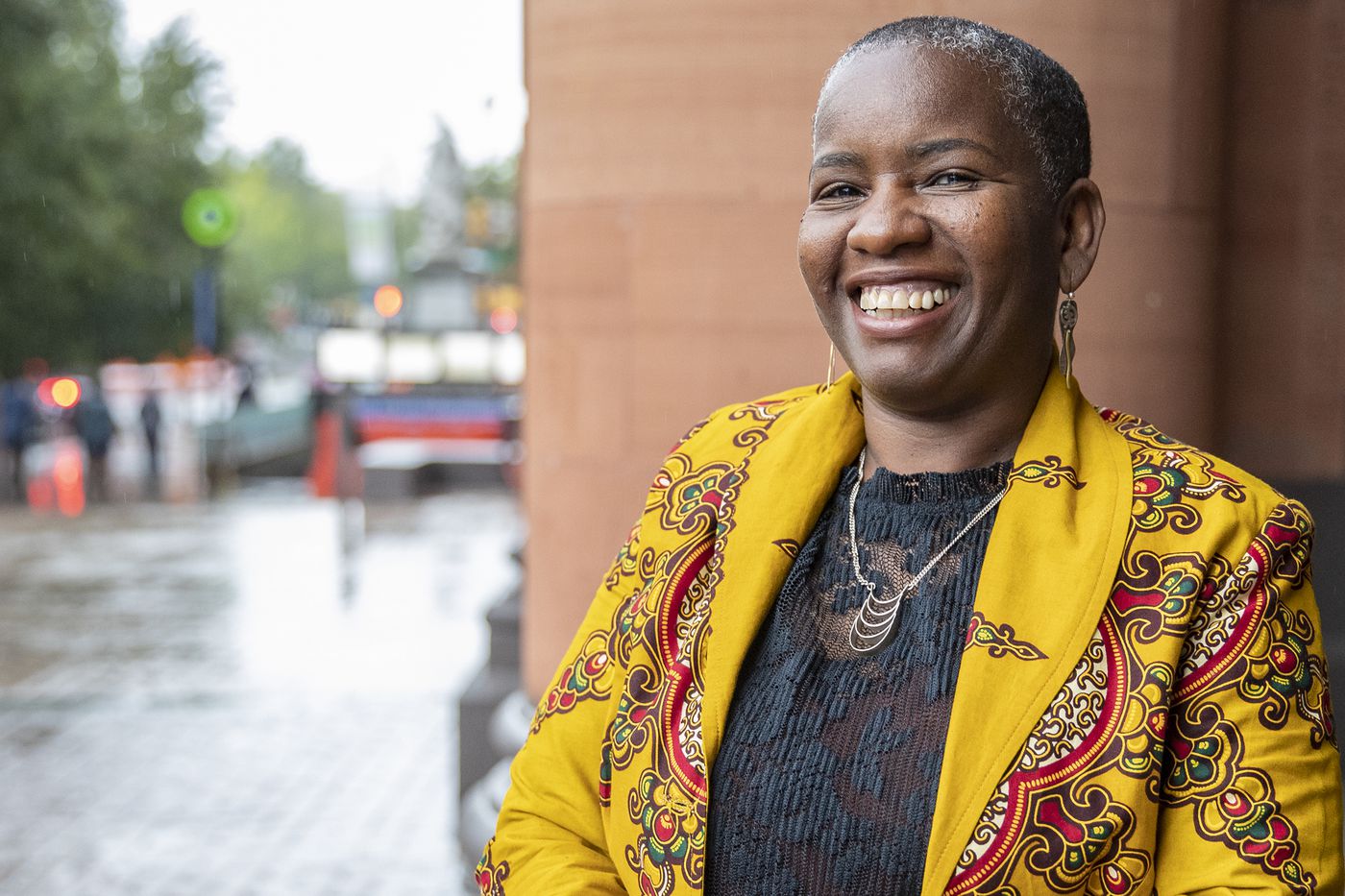
Cherron Perry-Thomas, co-founder of the Diasporic Alliance for Cannabis Opportunities.
Cherron Perry-Thomas, co-founder of the Diasporic Alliance for Cannabis Opportunities (DACO), is spreading the word. “DACO was created to promote awareness,” said the Germantown marketing executive. “You have a lot of marginalized communities that are not aware of the legal space and the economic opportunities happening in cannabis.”
Perry-Thomas and co-founder Desiree Ivy launched DACO last year with a conference at Temple University that attracted over 800 people. “That showed us that there’s a lot of smart people who want this information. A demographic survey showed that 75% of the attendees were college-educated and 65% made $75,000 or more a year.”
Perry-Thomas said her desire for social impact drives her passion for the nascent marijuana industry. “How can we take this business and revenues from this industry and put it somewhere where it can make a larger social difference, especially in population centers that have been devastated by the War on Drugs?”
She teaches aspiring entrepreneurs what questions to ask. “It’s about more than ‘how can we make money,’” she said. “It’s about showing people how we can create intergenerational health.”
Maria Rodale, adviser to Treehouse and Rodale Institute
Maria Rodale, former chairman and CEO of Rodale Inc., now on the advisory board of Treehouse Global Ventures and Rodale Institute.
COURTESY OF MARIA RODALE
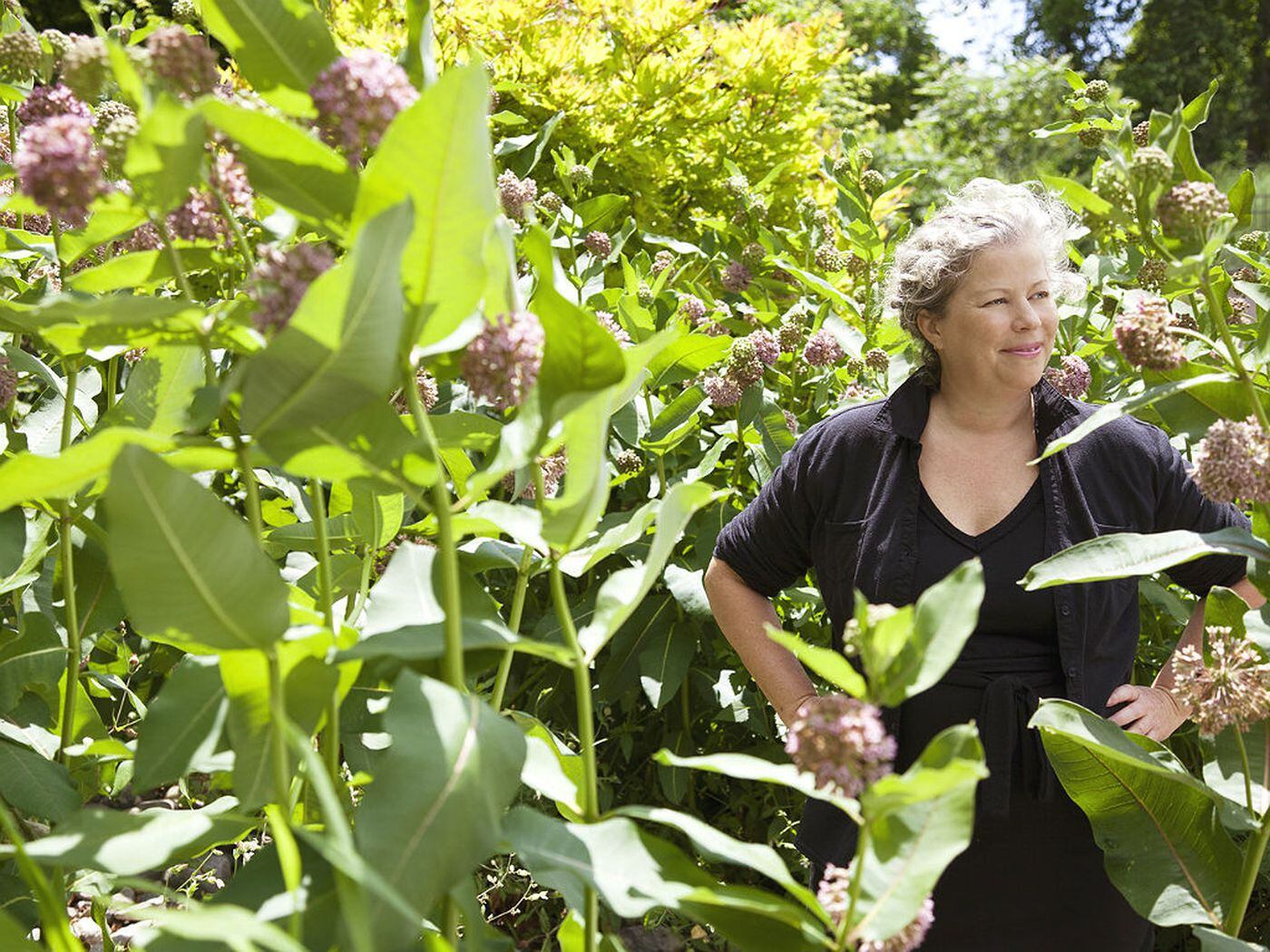
Maria Rodale, former chairman and CEO of Rodale Inc., now on the advisory board of Treehouse Global Ventures and Rodale Institute.
Maria Rodale was chairman and CEO of Rodale Inc., which published Men’s Health, Women’s Health, Prevention, Runner’s World, Bicycling and other magazines before it was sold to Hearst in 2017.
Now she’s joined the advisory board of Treehouse Global Ventures, working with Snider and others in the cannabis investment space. She recommends watching Grass Is Greener, a Netflix documentary about the history of marijuana and the targeting of African Americans during the War on Drugs.
“While I myself am not a big proponent of the use of cannabis for recreation, I’m very interested in its medicinal uses and hemp for farmers," she said. "As a publisher. I saw the double-edged sword of the pharma industry up close. I’m very interested in the power of plants and organic remedies in partnership with medicine. But if you’re going to pick between Vicodin and oxycontin or smoking a joint, for God’s sake smoke the joint.”
“Hemp was one of the most important crops around the world."
Maria Rodale
Treehouse invests in hemp, cannabis, and CBD companies that preferably support women and minorities, Rodale said. “This industry today reminds me of the early days of organics and the vitamin industry. There are a lot of players, some credible, some not at all. There’s no clear regulations, and the research is still just in its infancy.”
She is also a current board member of the Rodale Institute, a nonprofit agricultural research organization near Kutztown, Pa., now researching hemp as a crop.
“Hemp was one of the most important crops around the world," she said. “Then it was banned, and we’ve become a culture of corn and soy, which is overproduced and unnecessary.” Luckily, she noted, hemp was made legal to grow in the U.S. last year.
Kristal Bush, StayLyfted.co

Kristal Bush, founder of StayLyfted.co, hosts pop-up marijuana branding parties around Greater Philadelphia and consults for start-ups.
COURTESY OF KRISTAL BUSH
Kristal Bush, founder of StayLyfted.co, hosts pop-up marijuana branding parties around Greater Philadelphia and consults for start-ups.
Kristal Bush, 30-year-old founder of StayLyfted.co, hosts pop-up pot parties around Philadelphia every month. Profiled by her alma mater, Temple, in its “30 Under 30” alumnae magazine feature, Bush also refers patients to doctors including Michael McCoy on Germantown Avenue and Medicinally Jointed on Broad Street in Center City.
“I’m excited about the new [legalization] bill in the state. I host pop-ups at secret locations. It’s older, younger people. I encourage people to go get their medical marijuana cards for their treatment. If you have lupus or cancer, you can’t buy weed off the street, you need to go to a dispensary. You know what you’re getting and learn about the science” of cannabis. Her next party is Nov. 30, by invitation only from
info@staylyfted.co.
A Wynnefield resident, Bush also works with local start-ups to market and “compete with the high-end companies such as Cresco.” Prices start at $400 for a package to incorporate and create a logo.
In addition, Bush and her business partner, Crystal Wyatt, founded Cannabis Transportation Service to shuttle patients between their homes and dispensaries.
Desiree Ivey, co-founder of Medicinally Jointed

Dr. Kisha Vanterpool (left) and Justin (center) and Desiree Ivey at the main entrance of Medicinally Jointed.
JESSICA GRIFFIN / FILE PHOTOGRAPH
Dr. Kisha Vanterpool (left) and Justin (center) and Desiree Ivey at the main entrance of Medicinally Jointed.
“Don’t buy your CBD at a Sunoco,” quipped Desiree Ivey at a recent B.PHL conference in Center City. Ivey, a co-founder of Medicinally Jointed and a leader with DACO and Women Grow, made the crowd-favorite remark on the panel in October, while discussing everything from where to begin when navigating CBD and marijuana as a health and wellness tool to what the future holds in regards to Pennsylvania law.
Ivey wants consumers to get prescriptions from doctors or a holistic care center like the one she helped open.
Ivey and her business partners were profiled earlier this year by The Inquirer. In 2014, Ivey began to explore alternative medicine for pain relief, which included Rick Simpson Oil, named after a Canadian medical marijuana activist. It’s characterized by a high concentration of tetrahydrocannabinol (THC), the main psychoactive cannabinoid in marijuana that gets people “high,” although Ivey said it helped her swelling and inflammation.
She and her husband teamed up with internist Kisha Vanterpool and Valerie Armstead, director of anesthesiology research at Fox Chase Cancer Center. In October 2018, they went into business together by opening Medicinally Jointed, an alternative wellness center and spa in Constitution Health Plaza at 1930 S. Broad St.
Medicinally Jointed has helped almost 1,000 people with state-approved conditions to obtain Pennsylvania medical marijuana cards. It charges $200 for a medical consultation and offers holistic services and treatments, like massage therapy, and CBD/hemp-based products, such as CBD-infused water and CBD 500mg tincture, a blend of hemp, hemp seed, and oils, which cost $10 and $40, respectively.
For women, she advises: “Manage expectations. Being a business owner, you have to manage expectations at home, your investors, and you can’t slow down. I had to train myself that both are important. When you have investors, you’re married to them, not just your spouse.”
Judy Wicks, activist and entrepreneur
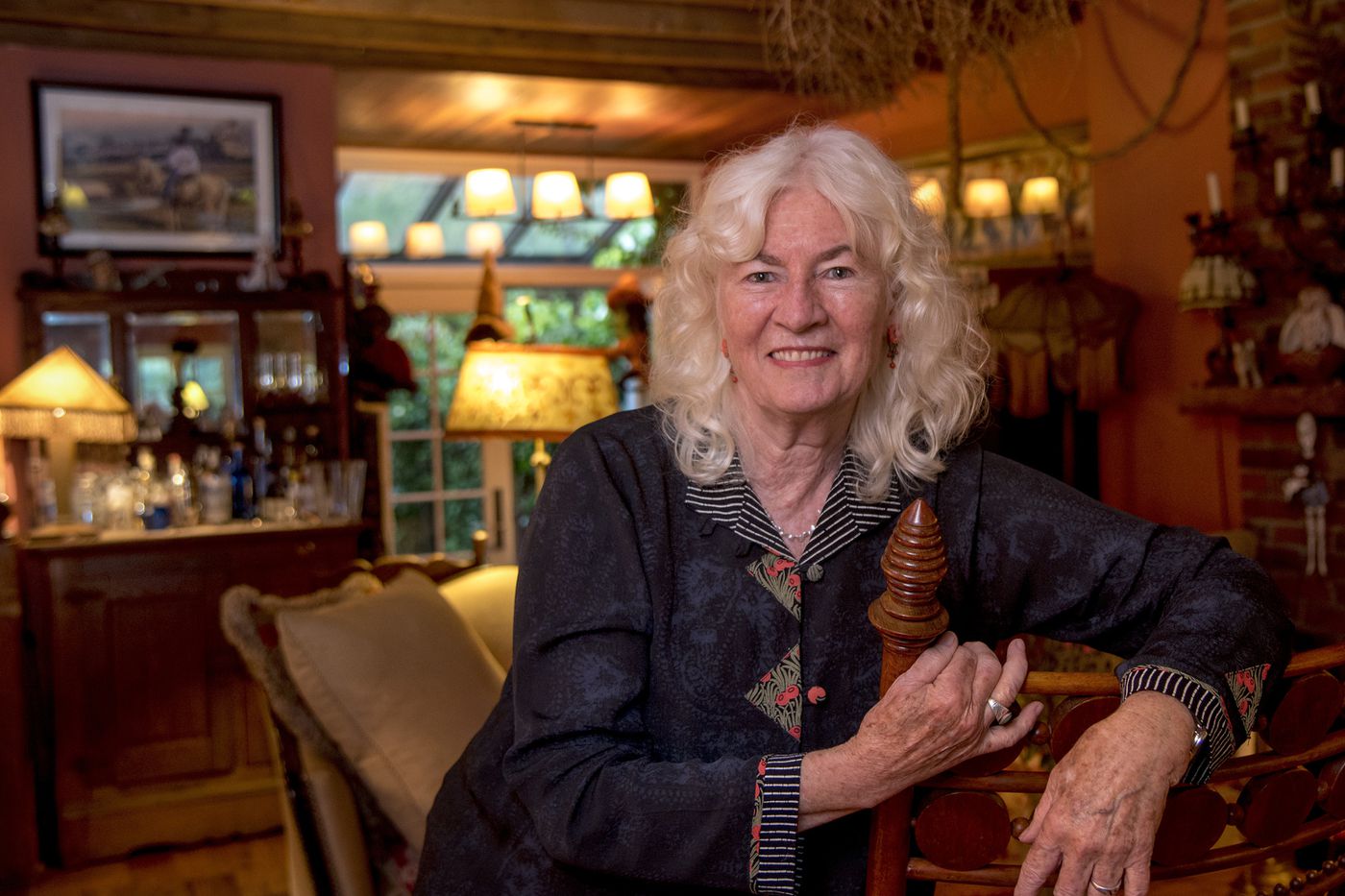
Serial entrepreneur (Free People, Urban Outfitters, White Dog Cafe) and social justice advocate Judy Wicks.
TOM GRALISH / STAFF PHOTOGRAPHER
Serial entrepreneur (Free People, Urban Outfitters, White Dog Cafe) and social justice advocate Judy Wicks.
“We have the opportunity to build the cannabis and hemp industries from the ground up,” said Judy Wicks, “And we shouldn’t blow this chance. Do it the right way.”
Wicks is a legendary Philadelphia entrepreneur. She co-founded the original Free People store, now known as Urban Outfitters, in 1970. Then she pioneered the farm-to-table movement in 1983 with White Dog Cafe. Since then she’s written several books and built business networks focused on sustainable local economies.
Her latest venture is All Together Now Pa., which stitches together locally owned farms and business to create a network of self-reliance. Cannabis cultivation, plant medicine, and renewable energy are cornerstones of the recently launched project.
“Hemp is a versatile plant,” said the long-time cannabis enthusiast. “It’s everything you need, and it’s all in one plant. It’s food, it’s medicine, it’s biofuels. We can build houses from hemp. It can be turned into bioplastics that are already being used as components in BMWs. And it’s our history. The Declaration of Independence was printed on hemp paper, and the sails of colonial ships were created from hemp fiber. It was stupid to make it illegal for 70 years”
Wicks wants to prevent the new industry from becoming a “green gold rush” for corporations. She doesn’t like how the state has allowed multi-state operators to dominate the medical marijuana program.
“We need it to create self-reliant local economies, bring prosperity to our communities, reduce dependency on the supply chains, and build economies that build things locally,” she said.
“Like craft breweries that have sprung up all over the state, I see cannabis helping to revitalize small towns.”
Judy Wicks
Wicks envisions a future that allows small producers to create craft cannabis.
“I’d like to see vertical businesses where the farmer grows outdoors, processes it, and sells it on the farm,” she said. “It’ll be just like a winery. And eventually there’ll be cannabis tours, just as in California.
“Like any kind of crop, cannabis reflects the soil and conditions of a particular region,” she said. “There’ll be regional variations. People will want to try different strains. Like craft breweries that have sprung up all over the state, I see cannabis helping to revitalize small towns.”
Sara Jane Ward, pioneering researcher
Sara Jane Ward holds two vials of CBD in her hands in her lab at Temple University.
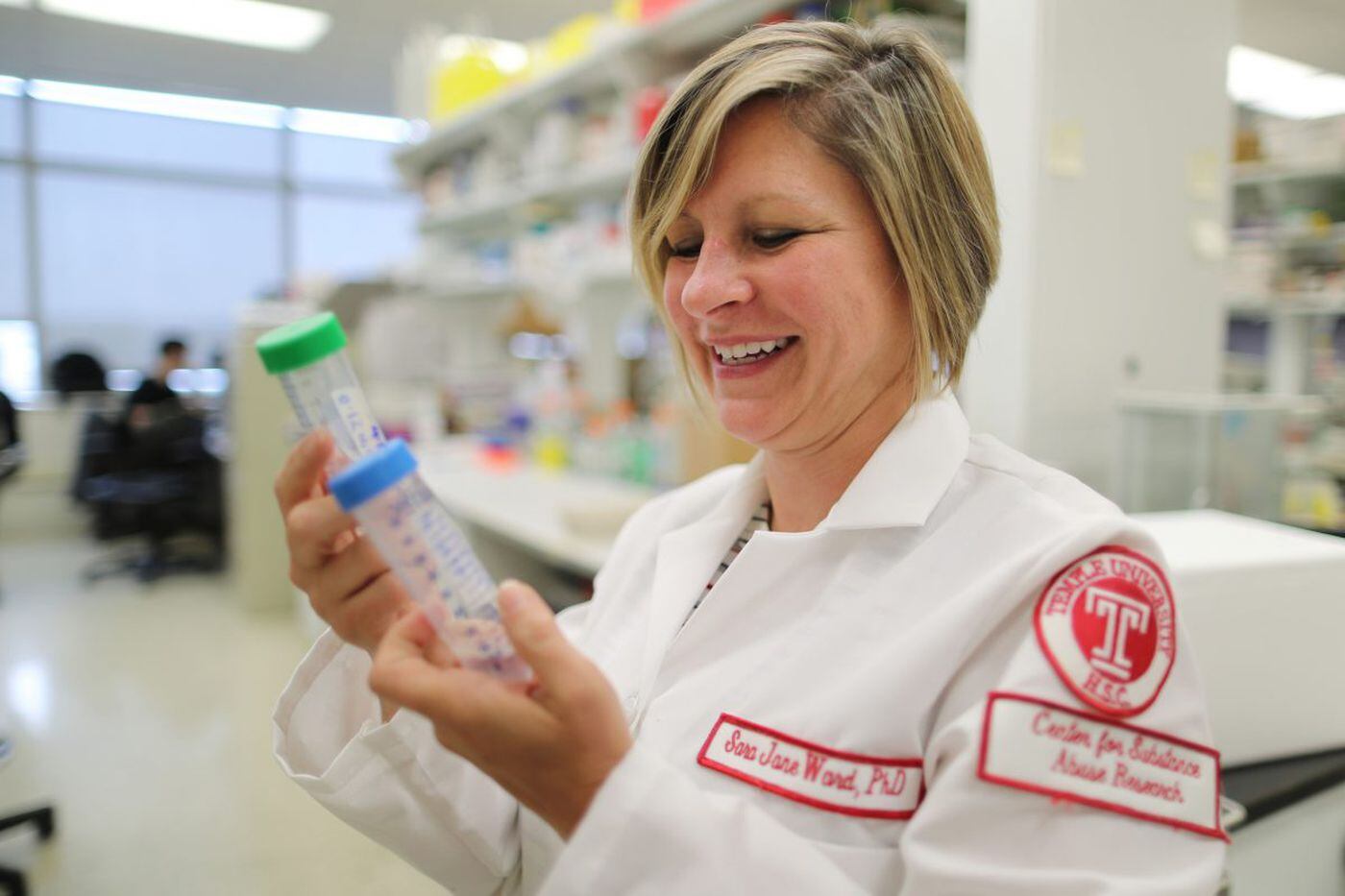
DAVID SWANSON / STAFF PHOTOGRAPHER
Sara Jane Ward holds two vials of CBD in her hands in her lab at Temple University.
For the last dozen years, one of the world’s preeminent cannabinoid researchers has quietly been digging into the healing properties of cannabis at Temple.
Sara Jane Ward is an assistant professor in the department of pharmacology at the Katz School of Medicine. In 2014, she was awarded $2.25 million from the Department of Defense to study CBD for spinal cord injury. In September, the NIH awarded her $1.25 million to evaluate the effectiveness of CBD and other cannabis compounds on neuropathic pain.
“The preclinical evidence is exciting and robust,” Ward said about CBD’s possibilities. “But I think it’s really important that people don’t get false hopes about it. I’m very excited about the potential promise, but we need to couch that in the evidence that’s available.
“The clinical evidence is coming along more slowly,” said Ward, who also serves on the scientific advisory board of FSD Pharma, a Canadian medical marijuana producer.
As recently as five years ago, the NIH refused to fund projects into phytocannabinoids, the hundreds of compounds produced by the marijuana.
“They didn’t consider cannabis a natural product, and weren’t interested in funding the research,” she said. “Now my most recent grant was one of nine the institute funded to study non-psychoactive cannabinoids for pain.”
The explosion of the hemp-derived CBD market worries her.
“People can now walk into a Wegmans and buy bottles of this stuff,” she said. “I have concerns about the reliability, the potency, and the purity of those products. Even if we know what’s in it, how much should we use? Are those products capable of having negative interactions with other medicines? Are they safe for people with liver disorders?
“We just don’t know yet.”
Blythe Huestis, president, Beyond/Hello dispensaries

Blythe Huestis is the national vice president of retail operations for Jushi. Based in Philadelphia, Huestis oversees dispensary operations at Beyond/Hello dispensaries in the region and across the country.
COURTESY OF BLYTHE HUESTIS / HANDOUT
Blythe Huestis is the national vice president of retail operations for Jushi. Based in Philadelphia, Huestis oversees dispensary operations at Beyond/Hello dispensaries in the region and across the country.
Blythe Huestis operated medical marijuana retailers in Arizona before she relocated to Pennsylvania and became president of Beyond/Hello, a chain of cannabis dispensaries with three outlets in the Philadelphia region.
After Beyond/Hello was acquired this summer by Florida-based Jushi, the combined company named her the national vice president of retail operations.
“Pennsylvania remains my primary focus,” Huestis said. “The program is robust and strong, and there’s incredible opportunity. I’m also working on projects in Virginia and Ohio, but Pennsylvania is my baby.”
Huestis said the cannabis industry has been extraordinarily welcoming to women. Within Jushi, the number of females in positions of power is 40%, she said. “We have women in the c-suite, in operations and manufacturing roles. Those are positions that are usually male dominated.”
Huestis, who maintains an active role in staffing and hiring, said it’s possible to ascend quickly through the ranks. “Women who started as bud tenders and pharmacists have risen to become managers.”
She gets alliterative as she talks about what she wants in a new hire: “We want to create a fantastic patient experience, so we look for people who are passionate, positive, professional, polite, precise, and punctual.
“If you possess those qualities, you’ll likely be successful,” she said. “You don’t need deep knowledge of cannabis. We do a lot of promotion from within. My message to women who are interested in this industry is that it’s OK to start as a bud tender or a patient consultant to get your foot in the door. I encourage anyone interested to apply, call us, talk to us."
Bridget Hill-Zayat, attorney at Hoban Law
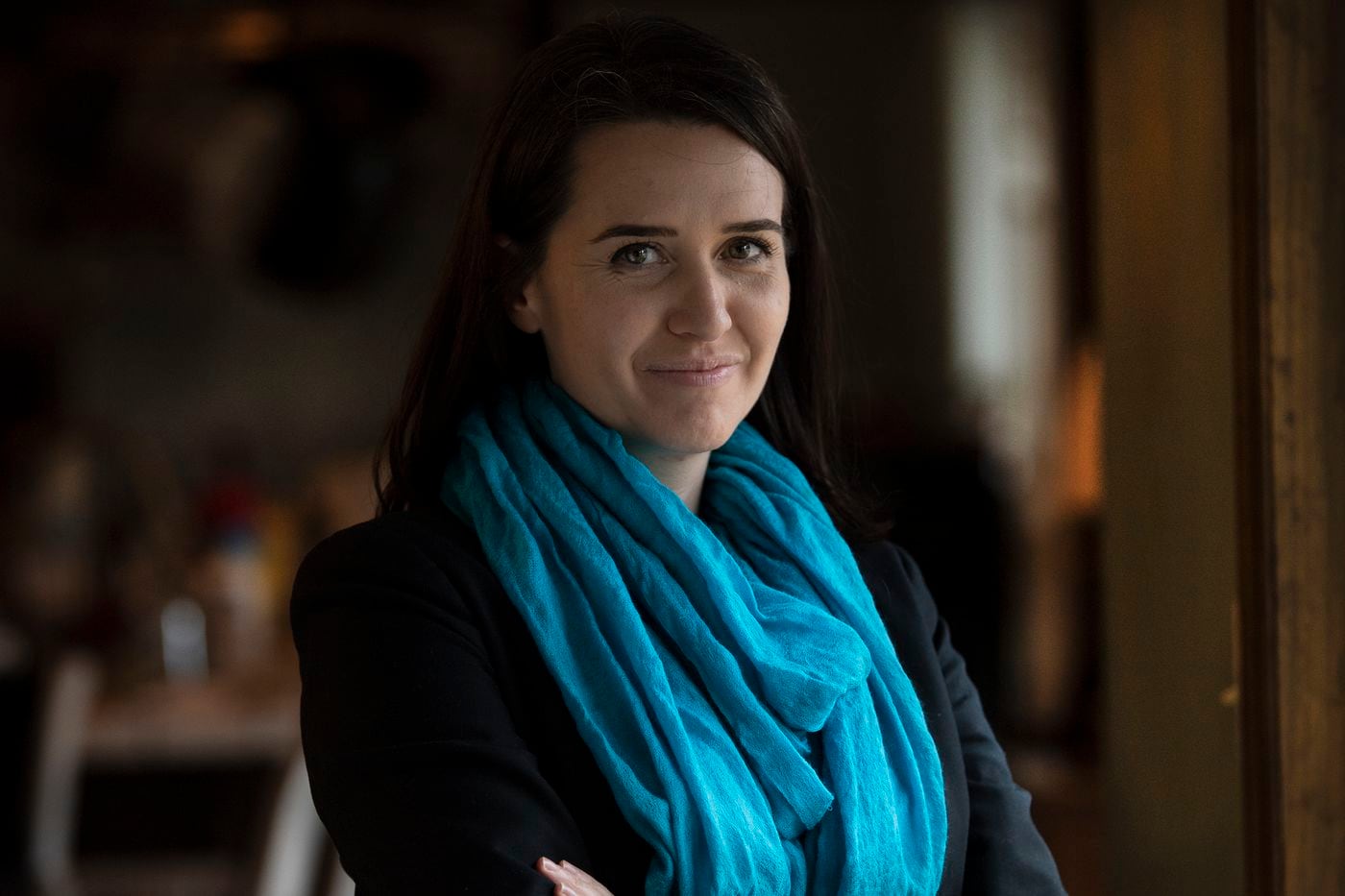
Attorney, Bridget Hill-Zayat is an attorney with Hoban Law Group, a national cannabis firm.
JOSE F. MORENO / STAFF PHOTOGRAPHER
Attorney, Bridget Hill-Zayat is an attorney with Hoban Law Group, a national cannabis firm.
Bridget Hill-Zayat didn’t plan on a career in cannabis law. When she started out, the field barely existed. She was a corporate attorney who represented energy suppliers when a client asked her to check out an anomaly. A residential customer inexplicably was using megawatts of power. The client couldn’t figure it out.
“I went to do a site inspection and it turned out to be ... a marijuana grow,” she said.
Her first encounter with weed world piqued her interest.
“The customer was paying 14 cents a kilowatt hour. But if they had asked for the commercial rate, they’d have paid $5,000 less a month,” she said. “So it began an interesting legal exercise to me. I thought I could make this better. I could figure out the rules.”
Hill-Zayat earned her B.A. from the University of Pennsylvania and her J.D. from Rutgers University. Since 2016, she’s been with the Hoban Law Group, a national cannabusiness firm. She maintains a portfolio that includes growers, dispensaries, and ancillary firms with licenses in several states. ”A lot of what I do is serve as liaison between the businesses and the regulators,” she said. “Many times I have to explain the market to the regulators.”
Since May, she also has served as the executive director of the Maryland Wholesale Medical Cannabis Trade Association. She also finds time to teach cannabis business courses at Stockton University in New Jersey.
She doesn’t consider herself a cannabis enthusiast. “It’s not like I was ever a patient or had a sob story. I just liked that it was a new field. I could learn it from the bottom up. I needed something that was truly interesting,” she said, “and cannabis more than fit the bill.”
Khara Cartagena, CBD entrepreneur

Khara Cartagena, CBD entrepreneur and businesswoman.
HEATHER KHALIFA / STAFF PHOTOGRAPHER
Khara Cartagena, CBD entrepreneur and businesswoman.
“It’s always going to be a man’s world, but I love playing in it,” said cannabis entrepreneur Khara Cartagena. “I really look at myself as a 6-foot-tall man trapped in a 5-foot woman’s body.”
A former Division 1 martial arts athlete, Cartegena had a string of successful careers before launching Breakthrough Brands. As the company’s CEO, she has created a line of CBD products — creams, emulsions and other skin care products — targeted at tattoo enthusiasts through a branding partnership with Inked magazine. She also has a line of encapsulated CBD “nanotapes” created for serious athletes and gym rats.
Cartegena began her professional career as a stockbroker at Janney Montgomery Scott. She later raised money for Keef Brands, a manufacturer of THC-infused beverages and edibles in Colorado. She was then recruited by a private equity firm.
While scoring wins in finance, she dabbled, prosperously, in Philadelphia real estate and opened the Velvet Lily, an erotic boutique at 12th and Chestnut Streets.
Cartegena is holding discussions with buyers from athletic gear companies, department store chains, and drug stores. Eventually, she hopes to segue into manufacturing psychoactive THC products.
Though women are few in the cannabis industry, Cartegena sees plenty of opportunities for people with the right skill sets and imagination. “I think women bring a certain style to branding,” she said, proving the principle that it takes one to know one. “The soccer moms are the unicorn market; that’s the one market you want. And everything should be tailored for their convenience, discretion, and aesthetics.”
Jennifer Zavala, the Cannachef
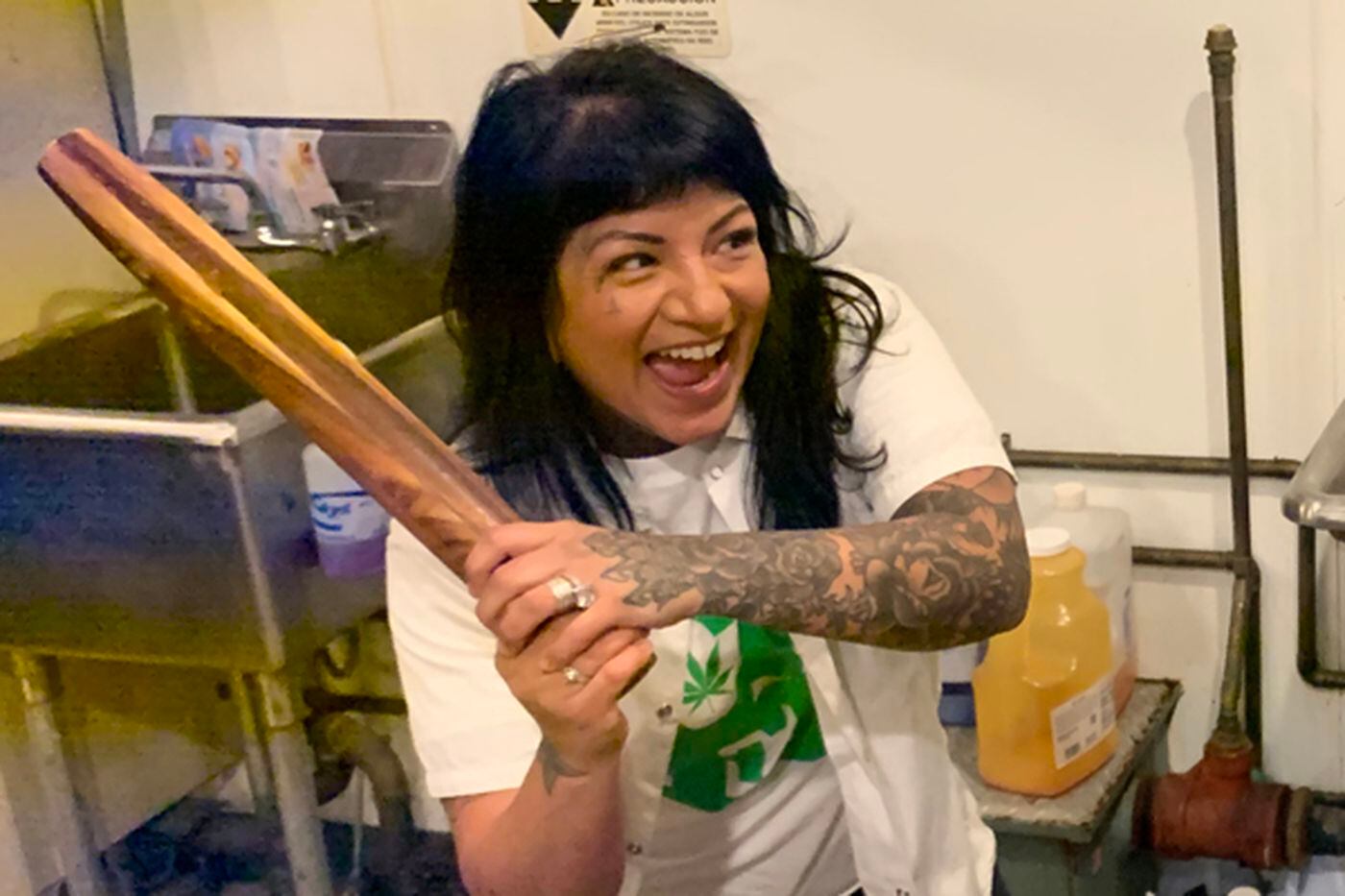
Jennifer Zavala is a chef and caterer with a part-time career as a cannabis chef to Pennsylvania medical marijuana patients. Here, she demonstrates the proper use of a rolling pin at her main gig at Underground Arts.
SAM WOOD / STAFF
Jennifer Zavala is a chef and caterer with a part-time career as a cannabis chef to Pennsylvania medical marijuana patients. Here, she demonstrates the proper use of a rolling pin at her main gig at Underground Arts.
“I love to cook with high citrus strains, but I also do hybrids or sativas,” said Jennifer Zavala, a former Top Chef contestant turned purveyor of fine cannabis cuisine. “People tend to get really ripped when I use indica, so I try not to use that.”
The heavily tattooed chef has her own catering business, once ran a renegade tamale food truck, and recently launched a culinary partnership with the nightclub Underground Arts.
But it’s Zavala’s off-hours gig, private dinners with a focus on a special seasoning, that won her a Best of Philly award from Philadelphia Magazine in 2018 in the “High Fun” category. (And yes, there are two other professional chefs doing pot luck in Philadelphia. But you’ll have to find them yourself on Instagram.)
A veteran of Xochitl, Amada, and Silk City, Zavala began cooking with weed because she felt she had to. Her father was wasting away from bladder cancer. “He was uncomfortable and really thin, and this was a way to help him,” she said.
Word got out. Other ailing gourmands started calling her regularly. Business took off. Her clients have to have a medical marijuana card. “This is about healing.” She prioritizes people who are sick. She asks her clients to provide their own medical-grade herbs.
“I have done party dinners. But those can get crazy,” Zavala said. “You try to advise people not to smoke, drink, or smoke more weed. They don’t always take my advice.”
Zavala said she doesn’t dose entire dishes. “I’m a really good chef, and want you to eat all your food and get through every course. So there may be a single infused crouton in your salad, instead of the entire plate. So you can skip that bite if you want to slow it down.”
She prefers to accentuate the flavor of cannabis rather than cover it up. Her preferred strain is Orange Crush. Someday, she said, she’ll write a cookbook.
Recreational cannabis is inevitable, she said. And she hopes her part-time vocation establishes her reputation as “a credible cannabis chef.”
“But right now, I want to be on the forefront of making it a normal thing.”
Sunny Podolak, regulator

Sunny Podolak, assistant director of the Office of Medical Marijuana, is the chief regulator of Pennsylvania's medical marijuana program.
PA. DEPARTMENT OF HEALTH
Sunny Podolak, assistant director of the Office of Medical Marijuana, is the chief regulator of Pennsylvania's medical marijuana program.
Sunny Podolak began her career with the Pennsylvania Department of Health in 2002. She served with the Bureau of Community Health Systems before becoming assistant director of the Office of Medical Marijuana in 2016.
Though she had no hands-on experience with cannabis, “it was an exciting opportunity to be part of building a program from the ground up while linking my experience in public health to this new and exciting industry in PA that helps so many people,” she said in a statement. She declined to speak directly to a reporter.
Podolak’s statement said she develops processes and policies to ensure compliance with the Medical Marijuana Act and its regulations. She also provides direction and oversight for the activities of the field inspectors.
Podolak wouldn’t say if she has set foot in a cultivation facility or a working dispensary.
She envisions continuing to move the program forward with more permitted grower/processors and dispensaries becoming operational, and patients continuing to access the medicine they need. She also looks forward to implementation of the clinical research program.
Laurel Freedman, leader for Women Grow network
Laurel Freedman is a “market leader” for the Philadelphia chapter of Women Grow, a national network of cannabis entrepreneurs that encourages women to take leadership roles in the industry.
COURTESY OF LAUREL FREEDMAN

Laurel Freedman is a “market leader” for the Philadelphia chapter of Women Grow, a national network of cannabis entrepreneurs that encourages women to take leadership roles in the industry.
Laurel Freedman wears many hats. She’s a “market leader” for the Philadelphia chapter of Women Grow, a national network of cannabis entrepreneurs that encourages women to take leadership roles in the industry. She consults with iCan, an Israel-based concern focused on growing the worldwide cannabis industry through international conferences.
She stages cann-events herself. Freedman organized the groundbreaking “Faith in Cannabis: Religion, Science and Justice in PA’s Medical Marijuana Program” at Center City’s Congregation Rodeph Shalom, where her husband, Eli Freedman, is a rabbi. The forum generated national headlines.
Last year, she led outreach and educational presentations for Maryland-based Holistic Industries, which operates Liberty dispensaries in Pennsylvania. Her programs were directed to physicians and organizations promoting legal access to medical marijuana.
In September, she was named the director of cannabis marketing for a Los Angeles-based video production company, Pollution.tv, which produces a marijuana-focused YouTube series called High Cuisine.
Her professional involvement in weed world came as an accident. “Someone gifted me a ticket to the Women Grow Summit in Colorado three years ago during a lull in my career,” she said. “I went with no expectations and wound up meeting some of the most incredible, inspiring women. It was invigorating.”
Though men overwhelmingly dominate the cannabis space, she doesn’t view it as a boy’s club.
“I get along with boys really well,” she said. “But we have a situation where the women are acting way more territorial than I’ve witnessed with men. There’s a lack of support for women by other women at the table. At Women Grow, we aim to fix that. It’s a very cutthroat industry. [Lindy Snider and Chris Visco are honorable exceptions. They are beacons of hope.”
For more stories about hemp, medical marijuana, and cannabis in all its forms, visit inquirer.com/cannabis.
https://www.inquirer.com/business/weed/ ... 91030.html 



